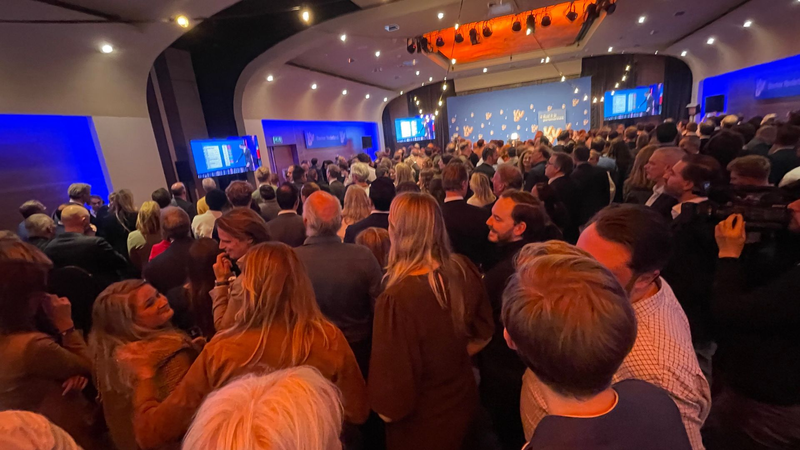The Netherlands voted Wednesday in a closely watched election that saw the liberal Democrats 66 (D66) snag a slim lead over Geert Wilders’ far-right Party for Freedom (PVV), with over 99% of ballots counted.
Emerging from the chaos of a coalition collapse just 11 months after Wilders’ PVV secured historic gains in 2023, this election marks a setback for the far-right. The PVV lost more than 10 seats, while D66 made “huge gains,” reshaping the balance of power in Amsterdam’s iconic Canal Ring and beyond.
Wilders, whose 37-seat haul last year briefly made him the largest party in its 25-year history, wasted no time staking his claim. "The PVV wants to take the lead in the formation if we were to become the largest," he declared on social media, warning that no D66 "scout" can start coalition talks until the final count confirms the outcome.
Yet most major parties have ruled out partnering with the PVV, citing deep disagreements on immigration and EU relations. For D66—known for championing innovation, social liberalism, and strong European ties—this opens the door to forming a coalition that could steer the Netherlands toward green tech investments, digital startups, and more sustainable travel policies.
As coalition talks loom, the Dutch electorate watches closely. A successful D66-led alliance could signal a renewed focus on climate action and human rights, offering lessons for young voters and activists worldwide. Meanwhile, business and tech communities are eyeing potential regulatory shifts that could shape Europe’s next wave of startups.
In the coming weeks, the real test begins: can the liberal democrats turn a narrow vote lead into a stable government, or will Dutch politics remain in flux? For now, Amsterdam’s canals are calm—but the nation’s future balance of power hangs in the balance.
Reference(s):
Dutch election: Liberal Democrats hold narrow lead, makes huge gains
cgtn.com



